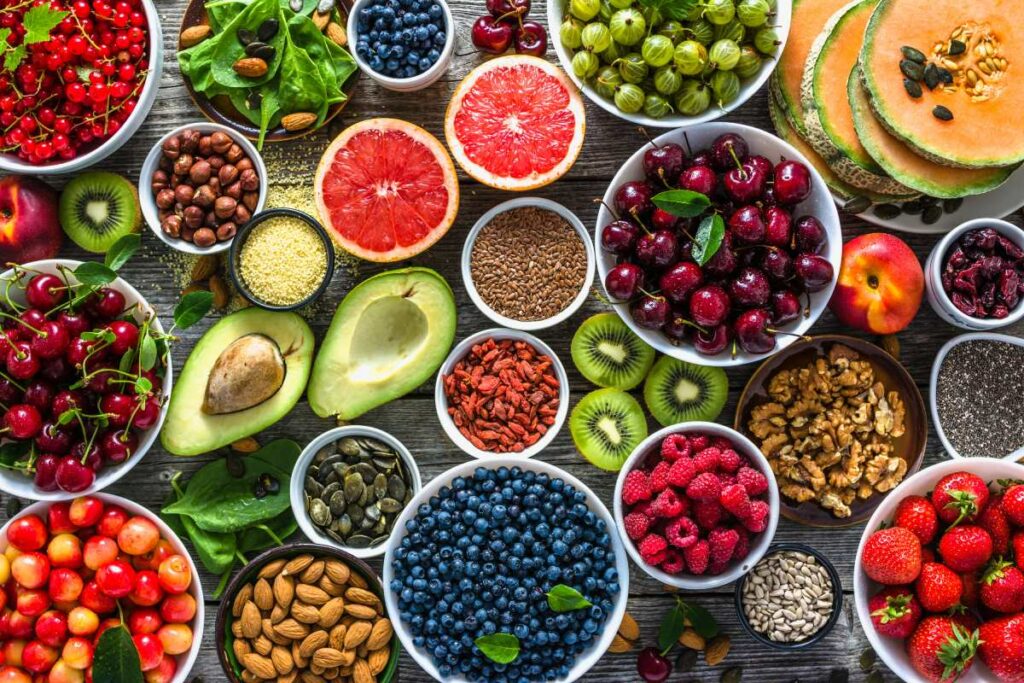There are so many “superfoods” on the market these days that it can be hard to know which ones are worth your time and money. We have a list of some of the most popular superfoods and discuss whether or not they live up to their hype. We’ll also provide some tips for incorporating these foods into your diet.

What Is A Superfood?
A superfood is a food packed with nutrients and considered beneficial for health. Some common examples of superfoods include blueberries, salmon, and broccoli. These foods are often praised for their high antioxidant content, which is thought to protect against chronic diseases like heart disease and cancer.
While many foods could be classified as a superfood, not all live up to the hype. Some of them may even be dangerous for your health. Here is a list of six popular superfoods and whether or not they are worth your time and money.
Graviola Fruit
The Graviola fruit is a superfood from South America’s rainforests. Its scientific name is Annona muricata, and it is also known by several other names, including soursop, custard apple, and guanabana. The fruit has white flesh that is both sweet and acidic and is often used in desserts and drinks. The Graviola tree can grow up to 20 feet tall, and its leaves are often used in traditional medicine.
The Graviola fruit is rich in nutrients, including vitamins C and B, potassium, magnesium, and phosphorus. It also contains several compounds believed to have medicinal properties, such as annonacin and acetogenins. These compounds are thought to be responsible for the fruit’s anti-cancerous properties. In laboratory studies, Graviola has been shown to kill cancer cells without harming healthy cells. It is still unclear how exactly Graviola works against cancer, but the hope is that further research will reveal more about this potential treatment.
There are many other purported health benefits of Graviola, including the treatment of arthritis, diabetes, asthma, and hypertension. However, more research is needed to confirm these claims. For now, the jury is still unsure whether Graviola lives up to its superfood status.
Kale
Kale is a leafy green vegetable that belongs to the cabbage family. It is one of the most nutrient-dense foods on the planet and is packed with vitamins, minerals, and antioxidants. Kale is also a good fiber source, promoting digestive health. This superfood has recently gained popularity due to its many health benefits.
So, does kale live up to its superfood status? Absolutely! Numerous studies have shown that kale has multiple health benefits. For example, one study found that eating kale can help protect against cancer. Another study found that kale can help improve heart health by reducing cholesterol levels and inflammation.
Kale is also a good source of vitamins A, C, and K. It contains calcium, iron, and potassium. These nutrients are essential for maintaining good health. However, kale is also high in oxalates, which can bind to minerals like calcium and cause kidney stones. Therefore, people with a history of kidney stones should avoid overeating kale.
Salmon
Salmon is a type of oily fish that is rich in omega-three fatty acids. These fatty acids are beneficial for heart health and have been shown to reduce the risk of heart disease. Salmon is also a good source of protein and contains several vitamins and minerals, including vitamin D, selenium, and potassium.
While salmon is a healthy food, it is essential to remember that not all types of salmon are created equal. For example, farmed salmon may contain higher levels of toxins than wild-caught salmon. Farmed salmon may also have lower levels of omega-three fatty acids than wild-caught salmon.
In general, wild-caught salmon is the best type of salmon to eat. However, farmed salmon is an excellent second choice if you can’t find wild-caught salmon. Just be sure to buy from a reputable source and check the labels to ensure the fish is low in toxins.
Spinach
Spinach is a leafy green vegetable packed with nutrients. It is an excellent source of vitamins A, C, and K. It also contains magnesium, iron, and calcium. Spinach is low in calories and has high water content, making it an excellent food for weight loss.
Spinach is also a good fiber source, promoting digestive health. Additionally, the antioxidants in spinach may help protect against chronic diseases like heart disease and cancer.
So, does spinach live up to its superfood status? Yes! Spinach is a nutrient-dense food that has numerous health benefits. Spinach is an excellent choice if you’re looking for healthy food to add to your diet. Just be sure to cook it properly to maximize its nutrient content.
Final Thoughts
Superfoods are a great way to improve your diet and get your body’s nutrients. However, not all superfoods live up to their name. Be sure to research and choose superfoods that are beneficial for health.



